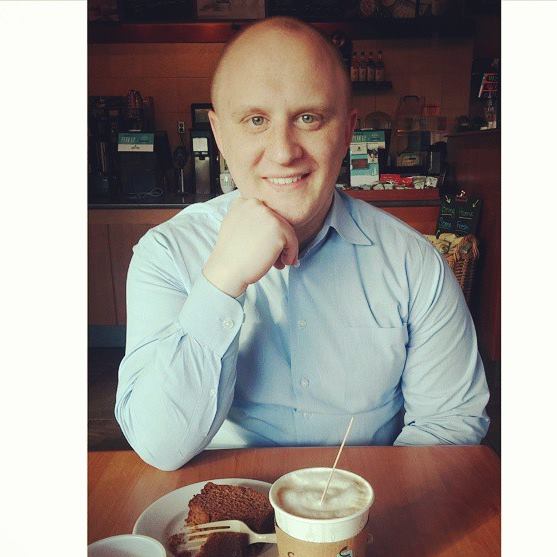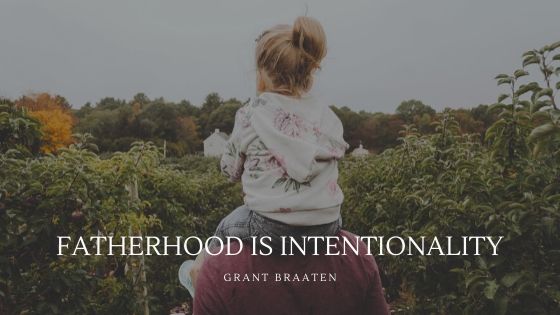For as long as I can remember, being a father was at the top of my list when it came to thinking about what I wanted to do with my life. I used to dream about the days when I would have a loving wife and children of my own that I could dote on all I wanted. As of right now, I consider myself the richest man on the planet due to the fact that I have found a wife and given life to children that are a bigger blessing than I could have possibly imagined. This is not my faith talking, I legitimately think my family is the greatest, and I make every effort imaginable to spend time with them.
It wasn’t always this way. Though there has always been abundant love and good moments in our family, my ignorance and lack of tools made our life miserable at times. As the leader of the family, I took my family on a roller coaster ride of emotions based out of my own weakness. I did some damage. I found out that desire alone was not enough to create love in a family. In fact, desire without intentionality and wisdom would lead me into a place of condemnation. I had a strong desire to be a good dad, with no idea how to do so.
I’m finding more and more that the essence of Fatherhood is intentionality. The love comes naturally, but if it lacks intentional expression, children are left to hope and guess.
As of the publishing of this blog, it is Father’s Day. I know Father’s day is typically designed to celebrate our Fathers and the contributions they have made to our lives. Obviously that’s a positive and affirming goal. I do know, however, that sometimes these kinds of days can be the most painful days a man can face in a year. It may remind a man of a Father that never showed up. It may make our own shortcomings more real to us. If you’re not the dad you know you should and could be, sometimes being “celebrated” feels hollow and empty because you know the truth. Even with all my desire and good intentions, I had hints of this creep into my heart. I knew I was not the Father I could be. And the only way to change that was to let that reality tick me off enough that it provided the fuel I needed to change. I got to the place where I refused to operate the way I was, as I was repulsed at the idea of my kids having to recover from me in order to experience God. Not for me and my family.
This year I have had a reformation and a paradigm shift in my life that has caused me to be more confident and effective as a parent. I don’t really have much of the dreaded “parent guilt” that I used to have. I have learned some new lessons and reinforced the things I was doing well. My kids have noticed a difference. It has actually made my marriage much stronger. When the Father starts functioning in a healthier way, it sets the tone for the whole household.
I want to share with you some core thoughts that are helpful for fostering a loving relationship with your children. I am not an expert, just some guy who has some great kids. I bet you’ve probably heard every concept I am about to mention, so this is not about introducing earth-shattering concepts. This is more about, as Peter said, “…stirring you up by way of reminder”. This is an encouragement to start intentionally walking these things out regularly. It will work like seeds. Some things you may see paying off immediately. Some will take time. But it’s worth it – I promise.
Under-Standing
The perfection we expect from our kids sometimes is astonishing. I am as guilty as anyone here. Listen, we have a hard enough time emotionally controlling ourselves on a day-to-day basis and we have fully developed brains. For some reason though, the moment our child struggles with an emotion we are on them like a drill-sergeant. Don’t get me wrong, I believe it’s important to nip bad attitudes in the bud quickly, but we have to get to the root of the attitude. If we don’t see it from their perspective (as any self-respecting human desires), we end up potentially damaging our heart-to heart connection with our children. This begets more attitude later.
This concept will help any relationship. Before you react, seek to understand where the behavior/attitude/comment came from. Determine in your heart that you will approach each encounter with your child in an understanding way. This isn’t easy, but it crushes the fear and anxiety in your child. What does that look like? It looks like coming along side them and standing under what they are standing under – the building blocks of “under-standing”. Putting yourself next to them, seeing it from their view and asking them about their experience before you come to any conclusions. In this way, you respond instead of reacting.
I can’t tell you how many times in the past I have snapped at one of my kids without trying to understand the decision they made in a given situation. Then when they have a chance to explain themselves, their reasoning actually makes sense. It may not have been the right decision, but by viewing their thought process, I can see how they arrived at that point. If instead of reacting, I seek to understand, it opens up the perfect window of opportunity to teach and reach my child, instead of reinforcing a fear that their thoughts don’t matter and that nothing is safe around daddy dictator.
Understanding is standing under what they are standing under.
It’s harder, it’s more tedious, and it takes immense intentionality. Sink the time into it now, and build the kind of trust that allows you to actually reach the heart of your child.
Remove Punishment
I believe that punishment doesn’t have a place in my life with my kids. I don’t do punishment anymore, because it only fosters fear. For most people, the idea of removing punishment seems impossible. How will my kids learn if they don’t pay when they do wrong?
We think this way because we were taught this way – do good, get good. Do bad, get beat. Since we are hardwired, in a sense, to “…do what I see my Father doing,” we propagate the same mentality generation after generation. Our parents were scared, so they scared us.
I’d like to suggest to you that fear, though it can be a motivator, is a terrible motivator long term. It also works in direct opposition to love. “There is no fear in love; but perfect love casts out fear, because fear involves punishment…” – 1 John 4:18. The original language for “involves” means to cling to, or fasten to. Fear and punishment are bed buddies. Love is placed in stark contrast to punishment.
The Word tells us over and over again to not fear, and yet we operate in such a way that we literally disciple our children in the ways of fear.
And we wonder why they have a hard time embracing the things of God. I must intentionally fight, with all the ferocity I can harness, to chase fear out of my household and my child’s heart. Their mess-ups are not the enemy – fear is.
Intentionally resolve to learn how to remove fear and punishment from your relationship with your children and watch love flourish.
It’s important, in order to remove punishment from your relationships to know the “why” in the core of your being. If you don’t rebuild your framework, you won’t stick with it.
I cannot recommend this book enough – Loving Our Kids on Purpose. It will give you a new covenant framework for removing punishment from your parenting that is much more robust than what I could expound on in a few sentences.
Affection
This may be harder for the older kids, but do everything you can to be lavish with your affection. This is not just hugs and kisses, but anything that demonstrates fondness and tenderness. For me, I am a touch person, so my kids get about 10 bajillion hugs and kisses daily, and they know when they need affection that I am a safe place for them. Because they have such a grid for pure love and affection, anything else to them will be easy to sniff out.
My philosophy has been, “if you think it, do it”. That means that if I see my son and the thought crosses my mind that he is handsome, I say it. If I see him and want to hug him, I go for it. If I have the passing thought that I’m proud of something He just did, I tell him. I never hold back. That means I may tell one of my guys 15 times in a day that he’s a stud. I may tell him I’m proud of him 20. Why hold it back? What good does that do?
One negative thought can sometimes speak louder than 20 compliments. I’m playing the numbers game here. I want them so full of how their daddy sees them that when they doubt themselves or have a negative thought come their way, they have some resilience built up.
My voice into their lives will eventually become a big part of their inner voice as an adult. I am intentionally seeding their thoughts over and over again with encouragement about who they really are. In this way, I co-labor with a God who is intent on the same goal.
I am not just saying robotic, rote compliments to them either. It’s important that it’s genuine and comes from how I actually feel. The more I do it, the more I realize how much there is to compliment. Not only does it shape their perspective, but it refocuses mine. It is second nature to me now. I have been so set on not holding back my affection for them that it naturally flows in our household. We are kind of nauseatingly affectionate in this house – and I wouldn’t change it for anything. We are creating a legacy of love.
Just remember your words create worlds. Your affection and confession are building confidence in your child. Kids play back what is placed in them. Intentionally set your heart to default to affection.
Dates are Heart Fuel
For the love of all things holy, take your kids on “dates” regularly. It’s not that hard. They desperately need time where you make eye contact with them and let them be the center of your world for a bit. This doesn’t have to take hours or be expensive. It just has to be intentional.
Most of the time for me, it looks like a basic run to the store. I could just run and grab what I need, but why not leverage the opportunity? I still remember most of these dates. A basic store run became a life-giving opportunity because I brought one of my dudes along. I’ll take one of them to Target, do the shopping, and then stop off in the food court and grab them a pretzel. It may take 15 minutes, but it’s 15 minutes of my undivided attention – which is gold to a kid. I don’t sit there on my phone and casually engage. I get to know them.
One of the key ingredients of intimacy is curiosity. I have to actually want to know my child. I sit there with them and ask them questions about things that interest THEM.
This date may cost me 4 bucks and yet it feels like a million to my child. It may be the highlight of his week. Take the time, do the date. This intentionality speaks volumes to your kids.
Choices are a Crankiness-Killer
As adults, we don’t like being told what to do. We want to feel like we have choices. You were designed to be free and be able to choose – the essence of free will. Why do we act like our children weren’t designed the same way? Would we like to have everything dictated to us all day long?
By inserting choices into your interactions with your kids intentionally, you communicate value to them. It communicates that they have a voice. If you don’t feel like kids should have a voice and that everything should be up to you, you may want to rethink your parenting paradigm.
I’ll give you a recent example with my youngest. He was very upset about something not going his way while we were heading out of the house to get in the car. He had one of those gross toddler fits, one that is not fitting for a 4 year old. Instead of yelling at him to pull it together, I ignored the fit. Instead, I inserted some choices. I asked him if he wanted to buckle himself or if I could buckle him (knowing I would be buckling him), and through his little pouted lip he asked me to do it. After I clicked it in, I asked Him if He’d like to pick the first song we listened to once we got going on the road. Of course, he said yes. I asked him which song, and he gave me his selection. By the time this interaction was over, he was diffused and kind of sat there looking dazed and confused, like “wasn’t I supposed to be mad about something?” He let whatever it was go and we moved on without a fight. I can only imagine what kind of day we would have had if I threw fuel on the fire instead.
When he throws a fit like that, he’s really screaming, “I feel out of control! HELP!” So, by giving him choices, I’m helping him feel a sense of control again, like a powerful person. It cost me nothing. Choices can kill that crankiness. See past the fits, and see what they’re really crying out for.
One positive side effect of this – the more this happens, the less he feels out of control and the more he knows how to get back in control of himself, therefore less fits occur. Choice is powerful! They will make millions of choices the rest of their lives – set them up to know how to do it well, and do it intentionally.
In Short:
- Stand under what they stand under
- Remove punishment from your parenting paradigm
- Be lavish with affection
- Take the dates
- Give them choices
It boils down to intentionality. Being a Father means being intentional. I pray for the courage for all of us to grow in our intentionality. Let’s live with our kids in an intentional way.

I am a Pastor, Author, and Teacher based out of Kansas City, MO. I am passionate about the message of the Kingdom, Grace, Healing and the renewing of the mind. I have been following God since age 18 when I was radically transformed and inserted into revival. I have learned some hard lessons and seen some wonderful fruit in the Kingdom, and my goal is to impart wisdom and grace to you to walk in fullness. I have a walking miracle for a wife and three amazing boys.

